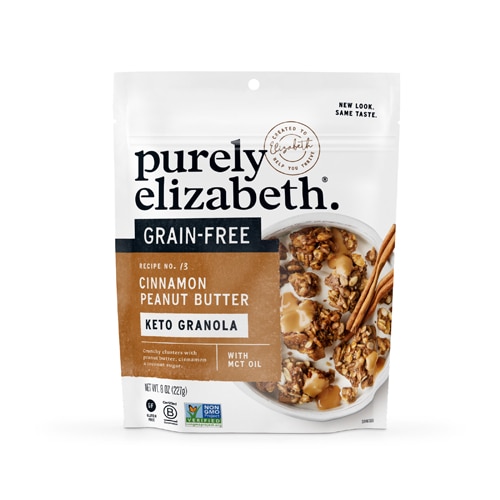[vc_row][vc_column][vc_column_text]The portfolio diet — a plant-based, cholesterol-busting diet that one health care organization calls “a diet without being a diet” — is gaining traction as another way to potentially lower your risk for heart disease and stroke
In October 2023, the American Heart Association’s research journal, Circulation, published a study showing
the portfolio diet reduced the risk of heart disease and stroke by 14% among the most diehard followers of the diet. The study was based on diet data for 166,270 women and 43,970 men enrolled in long-term health studies who didn’t have cardiovascular disease when they enrolled in the mid-1980s and early 1990s.

Researchers developed a portfolio diet score ranking participants’ consumption of
plant proteins,
nuts and seeds, viscous fiber, phytosterols and plant sources of monounsaturated fatty acids. The researchers discovered that those with the highest diet portfolio score saw the greatest decrease in the risk of heart disease and stroke compared with those receiving the lowest score.
The study’s lead author — registered dietitian Andrea Glenn, a postdoctoral fellow at Harvard University and the University of Toronto — said in an American Heart Association article that the study’s findings highlight “an opportunity for people to lower their heart disease risk through consuming more of these foods recommended in the diet.”
Aside from potentially reducing
cholesterol levels, the
portfolio diet might lower other risk factors for cardiovascular disease, including blood pressure, inflammation and triglycerides (the most common type of fat found in the body), according to a study published in 2018.
What is the portfolio diet?
While the portfolio diet is now attracting more attention, it’s been around for about 20 years.
The magazine Today’s Dietitian
describes the portfolio diet as a modified vegan diet that features an array, or portfolio, of foods shown to reduce cholesterol. Research directed by Dr. David Jenkins, a Toronto nutrition researcher, led to creation of the portfolio diet in the early 2000s. The diet aims to lower levels of “bad” cholesterol (LDL).
The Kahn Longevity Center describes the portfolio diet as a “
diet without being a diet” that focuses on four food groups for most or all meals. These food groups are soy protein, nuts, plant sterols and soluble fiber. Goals of the portfolio diet can be achieved with a fully plant-based diet or as part of the better-known, fruit- and vegetable-dominated
Mediterranean diet, the center says.
How can I adopt the portfolio diet?
When you follow the portfolio diet, you eat more plant protein (such as beans, lentils, nuts, seeds, soy foods) and cut back on animal protein (red meat, poultry, eggs, dairy), according to
Canada’s Alberta Health Services. The diet emphasizes nuts, plant sterols, soy protein and soluble fiber.
The Canadian Cardiovascular Society
offers these suggestions for adhering to the portfolio diet:
- Eat 45 grams of nuts each day (roughly one handful). If you’re allergic to nuts, substitute them for seeds. Try adding them to cereal, yogurt or salads, or nibble on them as a snack.
- Consume 50 grams of plant protein each day. To help reach this goal, eat beans, soy nuts or tofu, or replace dairy milk with soymilk.
- Eat two servings of beans, chickpeas, lentils and oatmeal to help meet the fiber component of the diet.
- Consume at least five servings of high-fiber fruits and vegetables every day. High-fiber fruits include apples, oranges and berries. High-fiber vegetables include eggplant and okra.
- Consume 2 grams of plant sterols each day. This means not only eating plant foods like corn, soybeans and squash, but adding sterol-fortified foods such as milk, juice, spreads and yogurt. You may even need to take supplements that contain plant sterols.
Glenn, the Harvard and University of Toronto researcher, said you don’t need to take an “all-or-nothing approach” to make the portfolio diet work.
“You can take your own diet and make a few small changes and see cardiovascular benefits,” she said. “You also do not have to follow it as a strict vegan or vegetarian diet to see benefits, but the more of the foods [from the portfolio diet] that you eat, the greater your heart disease risk protection, as we saw in the current study.”
Today’s Dietitian notes that consuming soy foods in place of dairy milk or other sources of animal protein might not be the best move for some people. The magazine advises dietitians to work with clients to determine their preferred sources of protein and encourage consumption of low-fat milk, nonfat milk or soymilk.[/vc_column_text][/vc_column][/vc_row][vc_row][vc_column][vc_text_separator title="Featured Products" border_width="2"][vc_row_inner equal_height="yes" content_placement="middle" gap="35"][vc_column_inner width="1/3"][vc_single_image image="171229" img_size="full" alignment="center" onclick="custom_link" img_link_target="_blank" css=".vc_custom_1702389102911{padding-right: 7% !important;padding-left: 7% !important;}" link="https://www.vitacost.com/eden-foods-organic-edensoy-soymilk-dairy-free-original"][/vc_column_inner][vc_column_inner width="1/3"][vc_single_image image="171227" img_size="full" alignment="center" onclick="custom_link" img_link_target="_blank" css=".vc_custom_1702389273992{padding-right: 7% !important;padding-left: 7% !important;}" link="https://www.vitacost.com/nature-made-cholestoff-complete-120-softgels"][/vc_column_inner][vc_column_inner width="1/3"][vc_single_image image="171228" img_size="full" alignment="center" onclick="custom_link" img_link_target="_blank" css=".vc_custom_1702389308810{padding-right: 7% !important;padding-left: 7% !important;}" link="https://www.vitacost.com/garden-of-life-organic-plant-protein"][/vc_column_inner][/vc_row_inner][/vc_column][/vc_row]
 Researchers developed a portfolio diet score ranking participants’ consumption of plant proteins, nuts and seeds, viscous fiber, phytosterols and plant sources of monounsaturated fatty acids. The researchers discovered that those with the highest diet portfolio score saw the greatest decrease in the risk of heart disease and stroke compared with those receiving the lowest score.
The study’s lead author — registered dietitian Andrea Glenn, a postdoctoral fellow at Harvard University and the University of Toronto — said in an American Heart Association article that the study’s findings highlight “an opportunity for people to lower their heart disease risk through consuming more of these foods recommended in the diet.”
Aside from potentially reducing cholesterol levels, the portfolio diet might lower other risk factors for cardiovascular disease, including blood pressure, inflammation and triglycerides (the most common type of fat found in the body), according to a study published in 2018.
Researchers developed a portfolio diet score ranking participants’ consumption of plant proteins, nuts and seeds, viscous fiber, phytosterols and plant sources of monounsaturated fatty acids. The researchers discovered that those with the highest diet portfolio score saw the greatest decrease in the risk of heart disease and stroke compared with those receiving the lowest score.
The study’s lead author — registered dietitian Andrea Glenn, a postdoctoral fellow at Harvard University and the University of Toronto — said in an American Heart Association article that the study’s findings highlight “an opportunity for people to lower their heart disease risk through consuming more of these foods recommended in the diet.”
Aside from potentially reducing cholesterol levels, the portfolio diet might lower other risk factors for cardiovascular disease, including blood pressure, inflammation and triglycerides (the most common type of fat found in the body), according to a study published in 2018.



